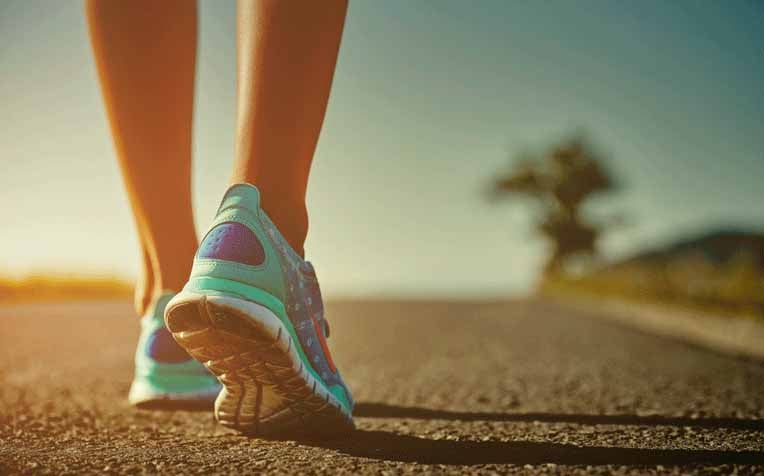HealthXchange will NEVER ask you to transfer money over a call. If in doubt, call the 24/7 ScamShield helpline at 1799, or visit the ScamShield website at www.scamshield.gov.sg.
How to Stay Awake Without Caffeine
1. Bright light exposure can help manipulate the body's internal clock to stay awake when tired.
2. Cooler temperatures, chewing, and strong scents can temporarily increase alertness and cognitive performance.
3. Adequate sleep is crucial for memory consolidation and optimal performance, especially before important events like exams.

Exercise is one of the natural ways to stay awake without caffeine.
Continued from previous page
3. Exposing yourself to bright light
A body’s internal clock takes cues from environmental and social factors, including sunlight and bright light. Hence, it’s possible to “fool” the body into staying awake even when it is tired. This manipulation of light forms the basis of light therapy, designed to aid shift workers and business travellers cope with working at odd hours and jetlag.
“As dim lighting aggravates fatigue, brightening the light intensity at your work space will help you stay awake. But do remember to give your eyes a break periodically from reading or staring at the computer screen to avoid excessive eye strain,” says Adj Assoc Prof Toh.
4. Lowering the temperature
Generally speaking, a slightly cooler temperature is conducive to sleep. However, dropping the room temperature until it becomes chilly should help in keeping you awake. If you’ve ever attended a conference in a freezing cold room, chances are the speaker wanted you to stay awake and alert, especially after lunch.
5. Chewing
Studies suggest that the act of chewing can help prevent sleepiness, improve cognitive performance and attention, says Dr Toh. The exact mechanism is not known but postulated to be related to an increase in blood flow to the brain. Unfortunately this boost in alertness cannot be sustained for a long time if a person is sleep deprived.
6. Use of aromatherapy
Although aromatherapy is generally used to induce relaxation and aid sleep, a strong smell – good or bad – can be an effective way to make you more alert instantly. Scents traditionally used to help one stay awake include rosemary, lime and peppermint. Whether aromatherapy is effective or not as a stimulant will depend on the individual.
In terms of forsaking sleep to prepare for exams, Dr Toh has this advice for students, “Rather than pull an all-nighter, students should try to go to the examination hall well rested and refreshed.”
He adds, “Sleep is important to allow students to consolidate their memory and recover from the rigours of the previous day. Being sleep deprived is not good for performance, which is why top performers in most professions make sure they are well rested before an important event.”
Ref: S13
Contributed by
Conditions & Treatments
Public Events
Get the Health Buddy App
© 2025 SingHealth Group. All Rights Reserved.














 Get it on Google Play
Get it on Google Play